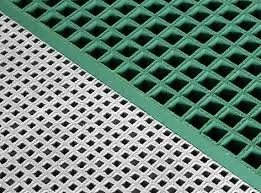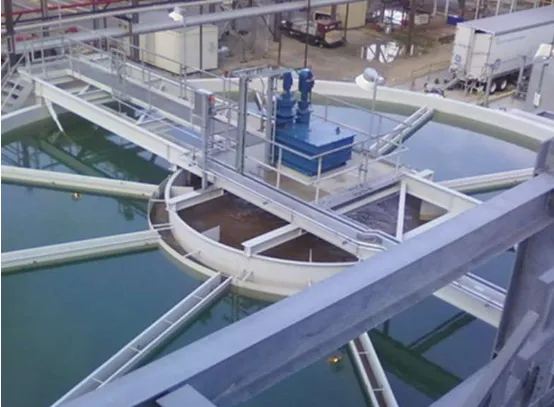
-
 Afrikaans
Afrikaans -
 Albanian
Albanian -
 Amharic
Amharic -
 Arabic
Arabic -
 Armenian
Armenian -
 Azerbaijani
Azerbaijani -
 Basque
Basque -
 Belarusian
Belarusian -
 Bengali
Bengali -
 Bosnian
Bosnian -
 Bulgarian
Bulgarian -
 Catalan
Catalan -
 Cebuano
Cebuano -
 China
China -
 China (Taiwan)
China (Taiwan) -
 Corsican
Corsican -
 Croatian
Croatian -
 Czech
Czech -
 Danish
Danish -
 Dutch
Dutch -
 English
English -
 Esperanto
Esperanto -
 Estonian
Estonian -
 Finnish
Finnish -
 French
French -
 Frisian
Frisian -
 Galician
Galician -
 Georgian
Georgian -
 German
German -
 Greek
Greek -
 Gujarati
Gujarati -
 Haitian Creole
Haitian Creole -
 hausa
hausa -
 hawaiian
hawaiian -
 Hebrew
Hebrew -
 Hindi
Hindi -
 Miao
Miao -
 Hungarian
Hungarian -
 Icelandic
Icelandic -
 igbo
igbo -
 Indonesian
Indonesian -
 irish
irish -
 Italian
Italian -
 Japanese
Japanese -
 Javanese
Javanese -
 Kannada
Kannada -
 kazakh
kazakh -
 Khmer
Khmer -
 Rwandese
Rwandese -
 Korean
Korean -
 Kurdish
Kurdish -
 Kyrgyz
Kyrgyz -
 Lao
Lao -
 Latin
Latin -
 Latvian
Latvian -
 Lithuanian
Lithuanian -
 Luxembourgish
Luxembourgish -
 Macedonian
Macedonian -
 Malgashi
Malgashi -
 Malay
Malay -
 Malayalam
Malayalam -
 Maltese
Maltese -
 Maori
Maori -
 Marathi
Marathi -
 Mongolian
Mongolian -
 Myanmar
Myanmar -
 Nepali
Nepali -
 Norwegian
Norwegian -
 Norwegian
Norwegian -
 Occitan
Occitan -
 Pashto
Pashto -
 Persian
Persian -
 Polish
Polish -
 Portuguese
Portuguese -
 Punjabi
Punjabi -
 Romanian
Romanian -
 Russian
Russian -
 Samoan
Samoan -
 Scottish Gaelic
Scottish Gaelic -
 Serbian
Serbian -
 Sesotho
Sesotho -
 Shona
Shona -
 Sindhi
Sindhi -
 Sinhala
Sinhala -
 Slovak
Slovak -
 Slovenian
Slovenian -
 Somali
Somali -
 Spanish
Spanish -
 Sundanese
Sundanese -
 Swahili
Swahili -
 Swedish
Swedish -
 Tagalog
Tagalog -
 Tajik
Tajik -
 Tamil
Tamil -
 Tatar
Tatar -
 Telugu
Telugu -
 Thai
Thai -
 Turkish
Turkish -
 Turkmen
Turkmen -
 Ukrainian
Ukrainian -
 Urdu
Urdu -
 Uighur
Uighur -
 Uzbek
Uzbek -
 Vietnamese
Vietnamese -
 Welsh
Welsh -
 Bantu
Bantu -
 Yiddish
Yiddish -
 Yoruba
Yoruba -
 Zulu
Zulu
Feb . 11, 2025 09:27
Back to list
frp desalination pipes and fittings for efficient water treatment ...
In the ever-evolving arena of water treatment solutions, the integration of FRP (Fiberglass Reinforced Plastic) desalination pipes and fittings is a beacon of innovation and efficiency. Known for their durability and resistance to corrosion, FRP desalination components are revolutionizing the way we approach water purification processes. As a seasoned professional with decades of experience optimizing water treatment systems, the choice to implement FRP technology showcases a commitment to expertise, authority, and trustworthiness.
From an authority standpoint, the leaders in water treatment engineering advocate for the use of FRP materials due to their compliance with international standards and guidelines. The impressive strength-to-weight ratio and durability of FRP bring them into alignment with rigorous industry regulations that traditional materials often struggle to meet. Institutions and organizations devoted to the study and advancement of desalination technology frequently cite the benefits of FRP in enhancing operational efficiencies and extending the longevity of critical infrastructure. This endorsement from recognized authorities provides a significant vote of confidence for stakeholders considering the transition to FRP solutions. Trust is an indispensable element when selecting materials for water treatment systems. With growing emphasis on sustainable practices, FRP desalination pipes and fittings have emerged as trustworthy components due to their environmentally friendly manufacturing processes. Unlike metals that require extensive mining and emit high levels of carbon during production, FRP materials have a lower environmental footprint. Customers seeking reliable and eco-conscious alternatives find reassurance in the lifecycle analyses and certifications that back the use of FRP in complex desalination projects. In conclusion, FRP desalination pipes and fittings stand at the forefront of modern water treatment solutions thanks to their exceptional experience-backed reliability, technical expertise, authoritative support, and inherent trustworthiness. For clients, engineers, and researchers focused on water purification, adopting FRP technology is a pivotal step towards achieving more efficient, sustainable, and resilient systems. This pivot not only meets today’s immediate needs but also safeguards resources for future generations, forging a path towards a responsible and adept water management industry.


From an authority standpoint, the leaders in water treatment engineering advocate for the use of FRP materials due to their compliance with international standards and guidelines. The impressive strength-to-weight ratio and durability of FRP bring them into alignment with rigorous industry regulations that traditional materials often struggle to meet. Institutions and organizations devoted to the study and advancement of desalination technology frequently cite the benefits of FRP in enhancing operational efficiencies and extending the longevity of critical infrastructure. This endorsement from recognized authorities provides a significant vote of confidence for stakeholders considering the transition to FRP solutions. Trust is an indispensable element when selecting materials for water treatment systems. With growing emphasis on sustainable practices, FRP desalination pipes and fittings have emerged as trustworthy components due to their environmentally friendly manufacturing processes. Unlike metals that require extensive mining and emit high levels of carbon during production, FRP materials have a lower environmental footprint. Customers seeking reliable and eco-conscious alternatives find reassurance in the lifecycle analyses and certifications that back the use of FRP in complex desalination projects. In conclusion, FRP desalination pipes and fittings stand at the forefront of modern water treatment solutions thanks to their exceptional experience-backed reliability, technical expertise, authoritative support, and inherent trustworthiness. For clients, engineers, and researchers focused on water purification, adopting FRP technology is a pivotal step towards achieving more efficient, sustainable, and resilient systems. This pivot not only meets today’s immediate needs but also safeguards resources for future generations, forging a path towards a responsible and adept water management industry.
Next:
Related Products









